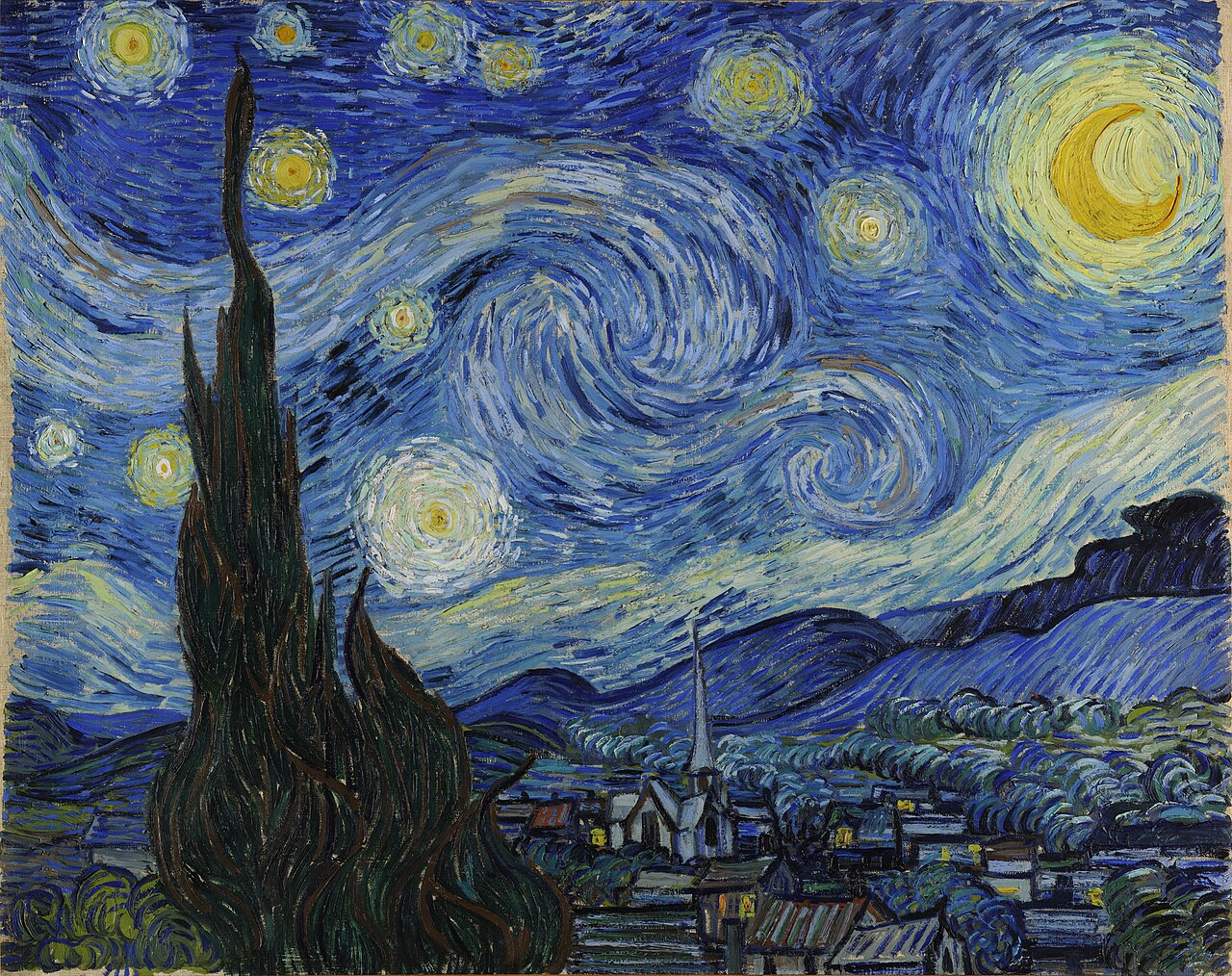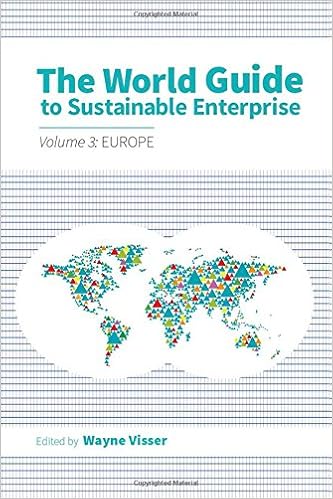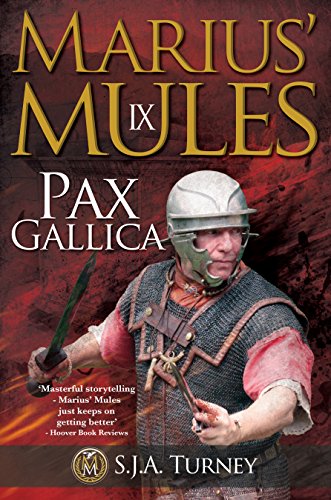Inspirat de un exercitiu la care am asistat anul trecut la National Gallery, unde un grup de studenti la Imperial College of Music au fost comisionati sa compuna cateva bucati muzicale bazate pe tablouri, am vrut sa creez povesti din tablouri. Impreuna cu Oana am ales tabloul de mai jos. Povestea ei o gasiti aici. Povestea mea, in continuare.
'Hai ma, vino-'ncoace. Ia, stai jos
aici. Uite, aici vin eu de obicei. Nu e asa adapost, ca vine tot
vantul de pe dealuri, dar mi-am facut aici un culcus, langa
boschetele asta. Si-n seara asta oricum e cald afara. Ia uite ce cer
curat, cum se vad stelele. Parc-ar fi mai aproape de noi azi. Incalte
de s-ar apropia si oamenii de cer... E-he, poate doar din varful
bisericii, M-am urcat o data acolo, cand eram mic, sa fi avut 11-12
ani. Cu Gheorghita, care sta colea mai la vale, uite in casa aia din
dreapta. Nu prima, a doua. A facut-o cand s-a luat cu Irina. Aia cu
acoperisul ala scund si negru. E mica deh, ca n-aveau bani, de unde
sa aiba, oameni tineri. Si-apoi Gheorghita s-a luat cu bautura, si
mica le-a ramas. Ma, tu stai bine acolo? Stai jos ca nu patesti
nimic, pamantul e cald, Nu mai piui ca un apucat ca sculam tot satul.
Asa, si ziceam, ne-am dus sus in
cloptnita, si zic eu Eu eram ala de nascocea nastrusniciile, dar Gheorghita
mi-o lua inainte cand era vorba sa le facem... Mereu a fost mai
puternic ca mine, deh, si c-un an mai mare. Si nu zice Gheorghita al
meu nici o vorba, desface franghia de pe clopot, face latz, si hop,
pana sus peste cruce. Era cruce buna, de fier, ca ne-a tinut sa ne
urcam. Dar cand ajungem sus, amandoi agatzatzi de cruce, ne uitam
fermecati la sat cand odata auzim.... crrrr. Am sarit de era sa
cadem. zic eu, . Incepe Gheorghitza sa rada de mine, ca ce ma
ti-e frica, ca da-l dracu' pe popa... ce ne-a mai blestemat popa cand
a aflat... Afurisenii, toata ziua buna ziua la mama la poarta ca sa-i
dea bani sa repare crucea de pe biserica, ca ardem toti in iad...
Mama, saraca, ce sa-i dea? Femeie singura... Si de-atunci nu-i
primea popa Alexandru nici un pomelnic mamei, de se ducea saraca, la
sarbatori mari, tocmai peste deal, la Turulung, la biserica. Nu zic,
ca mi-am luat si-un perdaf... zicea Maria, vecina, doua
case mai incolo. Uite, are lumina aprinsa si-acum baba Maria,
saraca... Abia de i se mai tine casa, sa n-o ia la vale, ca-i mai si
zic lu' Gheorghita...
Da' stai ma jos ca parca-mi stai in
cap. Noroc, zic, ca dupa vreo doi ani a murit si popa Alexandru,
afurisit mai era... Primu' din sat care s-a dat cu comunistii cand au
venit cu colectivul. Cam p-atunci era, cu vreun an inainte sa-i
indoim noi crucea, uite ca se si vede. Uite, apleaca-te aici, daca te
uiti la tufa s-apoi la turla bisericii vezi ca e nitel indoita spre
spate. Eh, burta lu' Gheorghita a fost acolo. Ce te tot uiti ma la
padure? Nu vine nimeni d-acolo, nici lupii nu umbla, asa e de deasa.
Cand vin, vin pe-acolo, pe dupa deal, ca p-acolo au tras si soseaua
spre oras. Le place si lor, saracii, sa mearga pe sosea ca oamenii.
S-apoi vin prin tufe si-ti iau oaia din tinda daca nu esti atent. Pai
n-a patit-o mos Iordan, ala de sta peste drum de biserica? Uite-asa,
au venit, tiptil-tiptil, vreo 3-4 sa fi fost dupa urme. Nu s-au uitat
la a lu' Ilie, nici la a lu' Mitica, astia amandoi betivi, dormeau
dusi. Si nici n-au gard cu lastarisul. Mos Iordan si-a tras casa mai
la drum, mai aproape de biserica, desi ai lui erau evrei de neam,
dupa tac-su mare, veniti de prin Moldova. zicea mos Iordan. Da' au stiut ei, lupii, ca Mos Iordan e
mai gospodar si hatz... nici pas nu s-a auzit. Da' nici nu s-au
lacomit, ca nu-s lupii ca oamenii, hamesiti. Au luat o oaie, s-au
saturat, s-au dus in treaba lor. Nici nu s-a suparat Mos Iordan, a
zis ca suflete sunt si ei... ba a mai taiat o oaie si-a chemat tot
satul la masa, cica sa-i faca pomana la aia prima. Om bun Mos Iordan,
d-asta l-au si luat nenorocitii astia la stuf... Eh, in fine, popa a
murit... sa tot fie 15-16 ani de-atunci. A venit asta de-acum, popa
Constantin... baiat de treaba. Era tinerel tare cand a venit la noi
in sat, daca avea 30 de ani, da' nu cred. Da' baiat destept, a fost
in Grecia, a fost de-a facut ceva facultati pe la Roma. Lumea zice ca
de-asta cam l-au trimis la noi in sat, ca sa n-ajunga pe la Bucuresti
sa faca scandal pe-acolo. Tocmai in capatul astalalt al tarii... Deh,
ce sa-i faci, cu neorocitii astia. Da' n-a zis nimic popa Costica,
si-a vazut de treaba lui, ce-a mai ras cand i-am zis de ce e crucea
indoita. Cu mine rade, pe Gheorghita mereu il cearta cand il vede ca
sa lase bautura. zice Gheorghita, si <Il dau dracu' cu
biserica lui, n-o cere si-asta bani pe cruce?>
Da' nu e asa, popa Costel ma ajuta
mereu. Uite ia, acuma are lumina stinsa. Nu la el acasa... unde te
uiti ma? Ti-am zis ca nu e nici un lup in padure ca e prea deasa?
Las-o dracu de farfurie ca e bine ascunsa, n-o vede nimeni. Cine s-o
vada dupa tufis? Tot satul merge la lucru pe deal, in partea aia,
ce-ti tot zic? Si mergem maine la popa, o sti el ce sa faca cu tine
ca parca esti picat din cer.
Asa, si ziceam, acolo, in casa aia cu
tigle rosii sta popa, a fost a popii Alexandru si cred ca si
dinainte, de cand ma stiu eu e acolo casa popii... Da' in biserica
zic, cand e liniste in sat, popa Costica tine lumina aprinsa in
clopotnita. Ma duc pe la el, bem o tuica, mai vorbim... Acuma e
stinsa, ca cica misuna militienii prin sat ca ulii. Ca d-asta si
umblam p-aici, ca dincolo peste deal mi-e sa nu dau de ei. Nu prea am
zis asta la multa lume, da' cu cine-ai a vorbi tu? Mama, saraca, i-a
dus cu vorba cand au venit pe la noi cu colectivul prima data. Ca
femeie singura, ca tata a murit in razboi sa le apere lor pieile...
Au mai venit odata in '53, da' de data asta s-a bagat si popa Costica
ca e femeie si ca eu n-am varsta cum prevede legea. Ne-a ajutat mult
popa Costica. Eu eram mare de-acuma, aveam 17 ani, da' tot pe vorba
lui mergeam. Cand au venit anu alalalt n-am mai mers pe vorba lu'
popa Costica, i-am dat dracu' pe toti, si pe Stalin, si pe Hrusciov
si pe Dej. Scandal mare... in fine, dupa ce s-a dus mama nici ca mi-a
mai pasat... Faceti ma ce vreti, da' eu nu semnez nimic. Trebuie sa
se duca dracu' si Dej... si uite ca s-a dus. De-atunci tot vorbesc cu
popa sa vedem cum om face, poate sa mergem la tribunal la Satu Mare
sa ne lase astia in pace. Ehe, ce-ar fi vrut Mitica, seful de post sa
ma duca la Sighet. Asta e altu' decat Mitica betivanu' de sta langa
biserica, sta la Turulung. Da' ce, m-a mai vazut la fatza de cand am
ingropat-o pe mama? I-am si zis, sa ma ia atunci sa-i fie cu pacat si
s-a speriat prostu'... De-asta zic, de tine nu stiu, da' stam aici
pana dimineata, cand s-o lumina o sti popa Costica ce sa faca si cu
tine. Pai nu zic toti popii asa, ca stiu cum sa ajungi la cer?'
Atunci a tunat. N-a facut zgomot asa
mult, da' cum era liniste, nu s-auzeau decat greierii, am zis ca s-a
spart cerul. Si-am simtit asa o arsura intre coaste.... Asta mic,
imediat, nici nu stiu cum naiba... piu, piu, a sarit in farfurie si
puf... Am apucat sa vad doar norul de praf in urma lui, si-asa, ca o
urma pe cer cand s-a dus... unde s-o fi dus. 'Mergi ma Ionica, mergi
ca p-aici nu e de stat', m-am gandit. Ce sa mai fug, ca de-acuma era
gata. Erau mai multi, ca nu venea Mitica miltianul singur, prea e
fricos. Inca una, tot acolo, in umar. M-am tarat doi pasi mai sus,
mai afara din tufis sa ma mai uit o data la sat. 'Astia aici ma lasa'
ma gandii. Eh, macar sa ma manace lupii, vorba lui Mos Iordan,
suflete sunt si ei. Si cum ma uitam asa la sat, parca vad ca incep sa
se invarta stelele, si sa se infoiasca asa, ca o gaina pe oua. Eh,
m-or chema, sau cine stie. L-am simtit pe Mitica militianul cum s-a
apropiat dupa mers. 'Ma!', zice. Da' n-am vrut sa ma uit la el. Am
vrut asta sa fie ultimul lucru pe care-l mai vad pe pamantul asta:
satul nostru cu biserica de i-am indoit noi crucea, si stelele
infoiate ca si cum m-ar astepta Dumnezeu... si dunga de fum cum a
plecat Ionica asta micu', cu farfuria lui cu tot, de unde o fi venit
el in seara asta... Am simtit ca-s toti in jurul meu, si mi-am simtit
si spatele, ud tot de la sange. Atat am mai zis: “Va fut muma-n
cur!”





